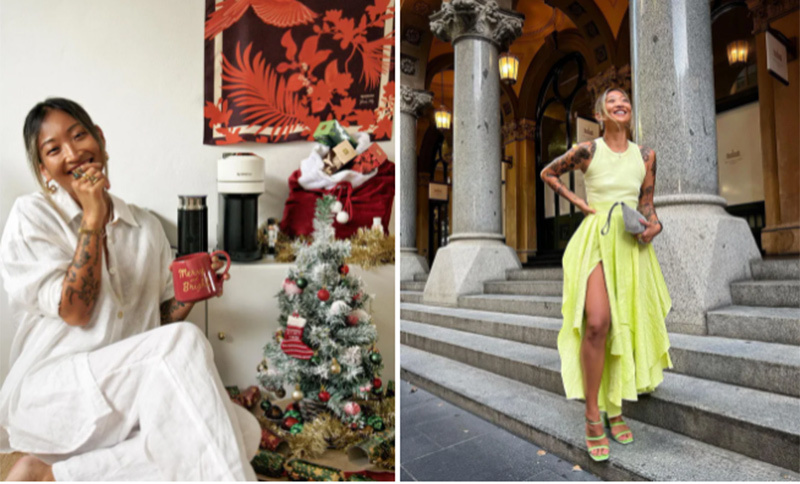CambodiaFor years adoption companies have hunted down poor mothers, buying babies for as little as a bag of rice to be adopted abroad.
Recently, Elizabeth Jacobs, 22 years old, from Massachusetts, USA, noticed an abnormality in her employment adopted child in 2000.
The birth certificate says Jacobs was born on January 1, while the orphanage records show it on February 2. Her last name in the adoption documents is Rath – a familiar Khmer surname but often used in forged documents. Jacobs also couldn’t find any information about his biological family. But she found out that the person who helped her adopt, named Lauryn Galindo, was convicted of fraud in 2004 for turning 800 Cambodian children of parents, orphans.
The more she delved into adoption, the more uneasy she became that she might not be an orphan. “I panicked. I didn’t know anything,” she said.

Elizabeth Jacobs with her adoptive parents at a young age and her current aunt. Image: Vice
Jacobs is one of many Cambodian children who have been victims of the international adoption movement, which peaked in the late 1990s to 2000s. Poverty has led parents to fall prey to scams run by camps. Orphansfrom which many children are sent abroad without the consent or knowledge of their parents.
“This fraudulent adoption has deceived many adoptive parents, as well as biological parents. The children have their identities stolen,” said Jacobs, who is working on a documentary investigating the cases, and herself. , said.
Since 1989, Cambodia has become an adoption country. American parents make up the largest number of adoptions, from 250 in 1998 to 100 a month in 2001. Lauryn Galindo’s center estimates millions of dollars in income by enabling 800 Cambodian children to become children. of American parents.
Concerns around child trafficking led the US government to ban the adoption of Cambodian children in December 2001, although it is still allowed in other countries. In 2004, Galindo was sentenced to 18 months in prison for money laundering and fraud in forging children’s birth certificates. It remains unclear how many adoptions Galindo cheated on. For his part, Galindo denies any wrongdoing.
Even if Galindo isn’t familiar with the adoption process, that doesn’t mean it’s without flaws. Social work professor Karen Smith Rotabi-Casares, California State University, who has studied international adoptions in Cambodia, calls this “intentional blindness”. “A lot of these agencies’ adoption officials don’t necessarily see the wrongdoing. They’ve got someone else doing all of it,” Prof Karen said.
Decades of fraud for international adoptions have caused deep suffering to families, said Naly Pilorge, director of the Cambodian Federation for the Promotion and Defense of Human Rights LICADHO. Her team supports mothers looking to reconnect with their children.
Naly Pilorge said that for many years a number of orphanages in Cambodia have been scammed, buying babies and selling them to US adoption agencies. A LICADHO report describes orphanage workers who actively approach poor women soon after they give birth in the hospital, soliciting a small sum of money to temporarily deliver their children and promise them that they will be cared for. squirrel.
“If mothers try to visit their children later, they are refused. If they ask for their children back, they will have to pay many times the amount they received before. child This will eventually be connected to adoption agencies in the US and elsewhere,” the report said.
Sister Neang Phol was a victim. In 2008, Neang, then 34 years old, raised five children alone on a meager salary from a rubber plantation. Oversized, Neang took 4/5 children to an orphanage in the capital Phnom Penh, 6 hours by car from work.
It was only a temporary arrangement, but months later, when she visited, she learned that her two daughters and a son, aged 5-12, had been sent to Italy. She did not agree and was not informed in advance. “My family was very poor at that time. I thought the orphanage was a good place for my children to live and have knowledge. I didn’t expect the children to go abroad and not be able to return,” she shared.
Terrified, she questioned the orphanage, but the result was nowhere. “They said if I told them, I might not let them go. I was angry but it was too late,” she shared.
To this day, Neang still has no idea what his three children are like, nor is there any way to contact him. After 14 years of waiting, she just wants her children to live well. “I don’t need my children around, but at least I want to remember me as their mother,” she shared.

Mrs. Neang on a construction site in Phnom Penh today, still desperately longs for her son. Image: Vice
Meta, 57, also suffered from separation. In 2006, a woman from Sihanoukville brought her children to Phnom Penh to work in a garment factory. Meta’s husband lost his ability to work, so the family situation was very difficult. Meta put the children in a local orphanage to get an education.
Meta visits the children weekly. But the center staff were annoyed when she visited. “The head of the orphanage said ‘Why do you come so often? If you keep coming, how can the children forget your face?”.
A few months after arriving at the camp, Meta’s six and seven-year-old children were sent to Austria. The distraught Meta demanded the return of her children, but was summoned by the police and accused of selling them. “It’s an injustice because they sent my child there without letting us contact him. There is no greater pain than losing a child,” she said.

During a September 2001 raid on an orphanage, police found 10 infants and a 3-year-old boy and 9-year-old girl. Five people were charged with illegal child trafficking, but were later released because of a “misunderstanding”. Image: AFP
Jacobs has approached many Cambodian adoption families since the beginning of the film project.Stolen childrenThe documentary about international adoptions has gained global attention. Jacobs and her team are currently fundraising ahead of filming in Cambodia later this year.
Sam Schmir, a 22-year-old studying in Maine, is also questioning his identity after seeing Galindo’s signature on an adoption document. “If it turns out that I was falsely adopted, it won’t affect my relationship with my current family. But I think it would be better to know my true identity,” Sam said.
When returning to Cambodia on a trip in 2014, Gosch and her adoptive mother were walking around the market when a woman held her child in front of her adoptive mother, saying: “Grandma, 30 dollars”. After that, she was like saying “25 dollars”, and continued to reduce the price until we were gone. The woman’s eyes were very painful. The experience still haunts me to this day, wondering if my mother abandoned me like that in the past,” she shared.
In 2009, the Cambodian government stopped international adoptions. However, it looks like adoptions are reopening last month, when it was reported at least nine cases were being processed. This is worrying human rights agencies and Jacobs’ group.
“When I was young, I wanted to adopt a child like I was loved in the future. But when I learned of the scandal behind and learned that Cambodia was reopening to international adoptions again, I was really worried. . Once it’s reopened, everything that hurts will come back,” Jacobs said.
Bao Nhien (According to Vice)
at Blogtuan.info – Source: vnexpress.net – Read the original article here



